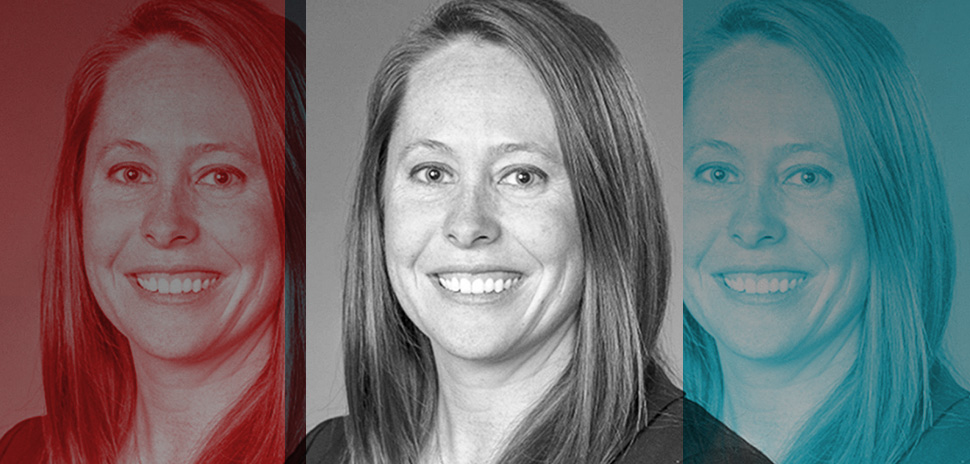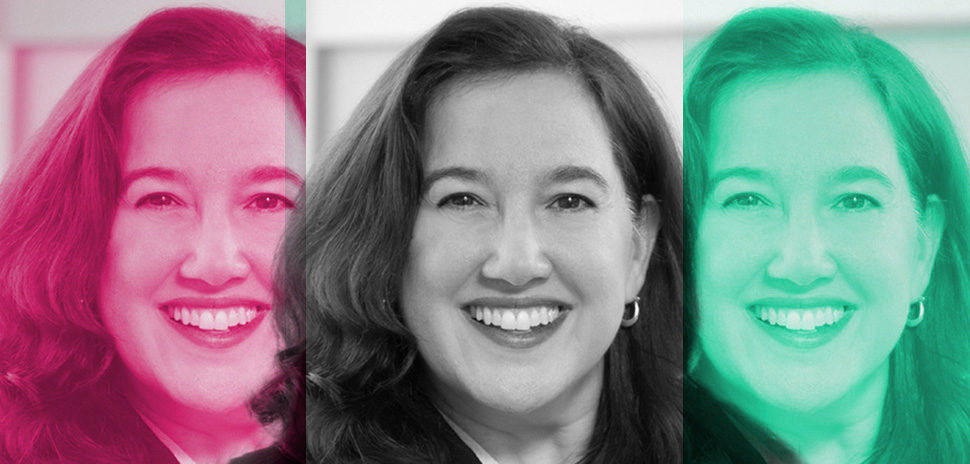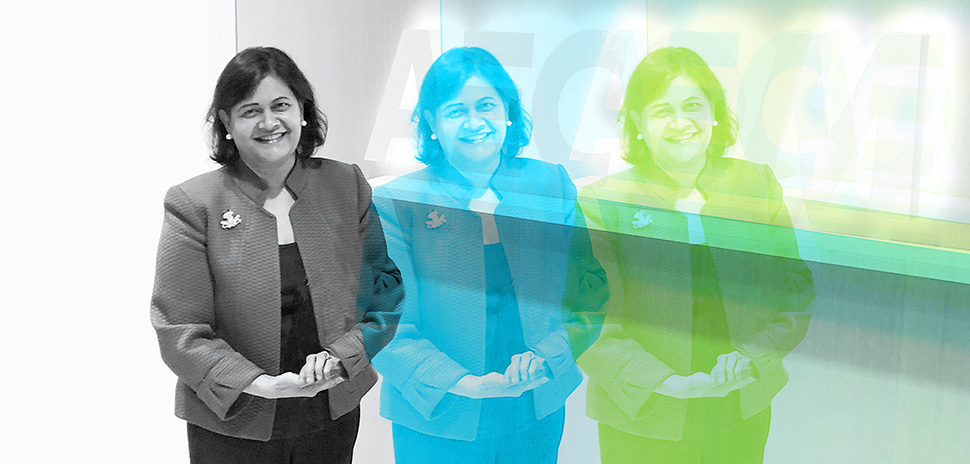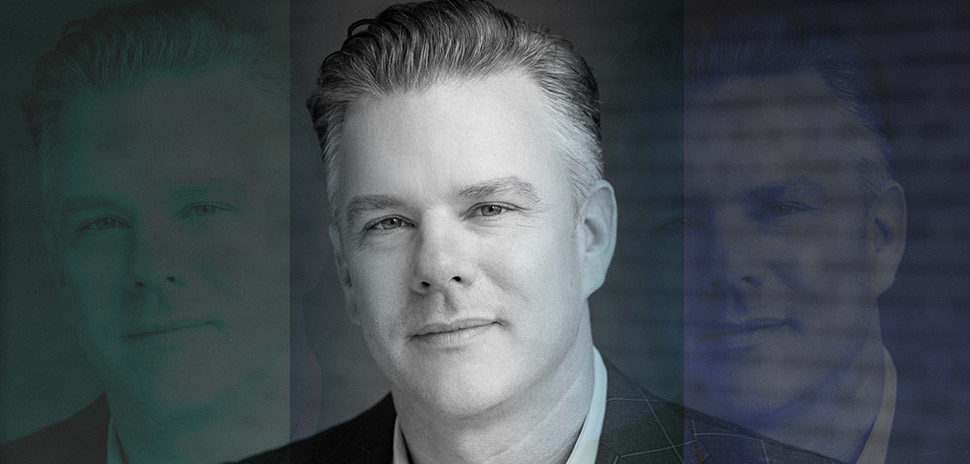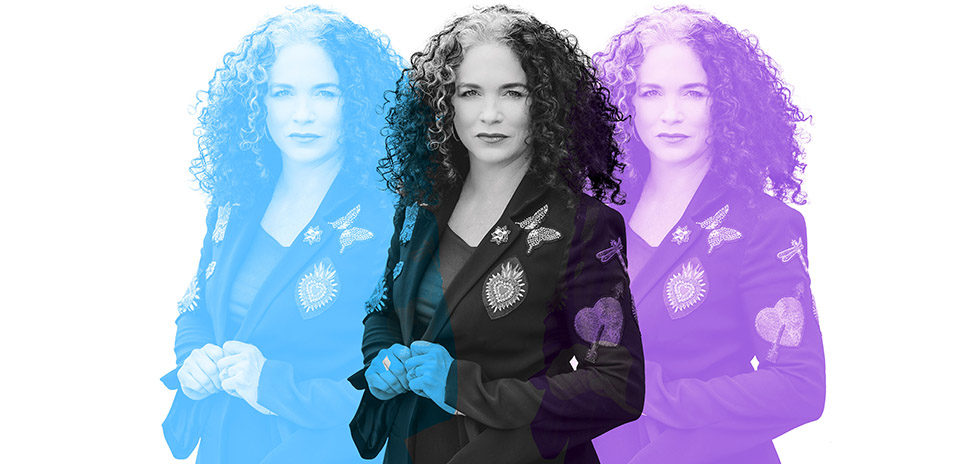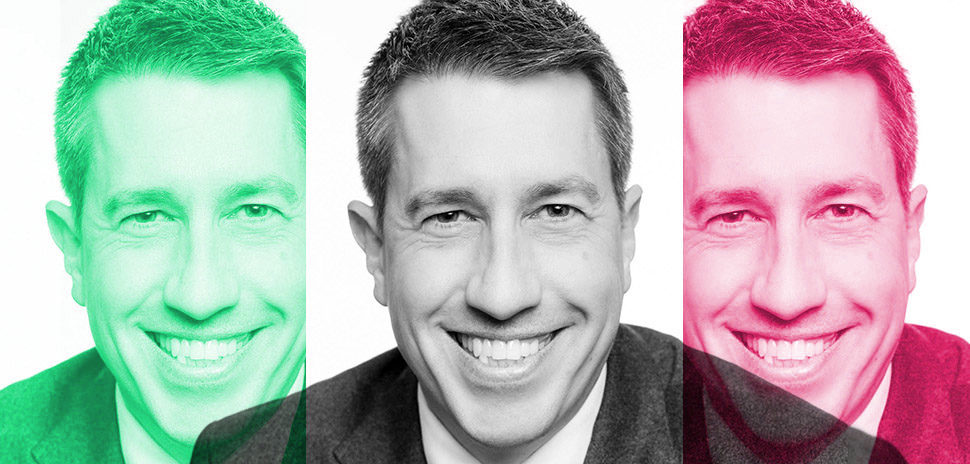As the chief engineer in the product area at Raytheon Intelligence & Space in McKinney, Jennifer Benson leads a distributed team spanning D.C. to California to develop lasers that can carry secure messages for satellites and aircraft.
ENTERPRISE
STEM Star
Jennifer Benson
Benson and the team working to overcome the atmospheric distortion of digital signals. The goal? Creating a system that works in rough atmospheric conditions 100 times as fast as the best residential Ethernet. The team’s developments help the U.S. military and other satellite providers fulfill their missions, Benson told Dallas Innovates.
It’s critical for national security that we continue making investments in research and development to create the tech that will give our warfighters an advantage in the future, she says.
Benson, who calls herself a “hands-on engineer, leads and mentors a team of about 35 chief engineers. On any given day, she’s focused on finding innovative solutions that range from tactical problems for the military to strategic business transformation for Raytheon.
COVID-19 has posed challenges, but her team persevered: “From a resiliency perspective, it helps to remind ourselves that our customer is the U.S. military,” she says. “They are not stopping because of the pandemic, and we have to continue working to support them in their service to our country.” Because the company’s work supports U.S. troops, its operations were deemed essential to national security.
Raytheon is a place people can come to work and make a difference, she says.
STEM Booster
Benson, who credits “all the of women who came before me” in science, tech, engineering, and math for blazing a trail, is active in helping to close what she calls an “ominous diversity gap” in STEM.
“The lack of diversity in STEM stops with us,” Benson writes in a recent commentary in T|H|E Journal, a publication that focuses on transformation in education through technology.
“As a society, we have preconceived notions of what engineers “look like,” primarily inspired by movies and media,” she comments. “Let’s debunk this myth.”
It’s critical that students from a wide range of backgrounds be exposed to strong, diverse leaders in STEM careers, according to the engineer. Benson also emphasizes that a career in STEM “doesn’t always have to do with math and computers — STEM captures a wide range of skill sets that these youth could possess.”
From an education perspective, the engineer thinks prioritizing problem-solving as the foundation of today’s curriculum is important. To keep kids interested long term, she recommends spending “less time in textbooks and more time in labs, taking a hands-on approach to learning.”
Benson who joined Raytheon through a college co-op program, worked her way up in the company in about a decade with increasing responsibilities. Not long after a promotion to her current position, Benson received the Raytheon CEO Award early last year, the company’s top honor.
Meet the engineer
Benson was featured in Dallas Innovates’ Future 50 in Dallas-Fort Worth in the 2021 edition of our annual magazine. We talk with Benson about engineering at Raytheon, innovating in a pandemic, and what’s next. Here’s the takeaway.
On the top 2020 innovations at Raytheon Intelligence & Space:
My group at Raytheon has been developing optical communications systems that use lasers to carry secure messages for satellites or aircraft. We’re working on new approaches that increase performance by overcoming atmospheric distortion. The improved performance also comes in lighter, smaller packages, enabling better communications for smaller volumes.
We recently transmitted high-definition video over a 16-kilometer path through rough atmospheric conditions at a rate of 1 gigabit per second. The plan is to push the rate to 10 gigabits per second in future tests—roughly 10 times as fast as the best residential Ethernet systems—and ultimately pressing to 100 for satellite missions.
On how her company is responding to recent challenges:
Raytheon Intelligence & Space develops technologies for the U.S. military. When the pandemic started, our operations continued as essential to national security because the work we do supports our troops.
From my perspective, Raytheon has been quick to adopt positive changes to how we work quickly. Our IT infrastructure helped many of us move to working from home quickly. We instituted a number of rigorous safety and health measures for those who have to go to one of the Raytheon facilities in Texas, including temperature checks, face covering, regular cleaning, and physical distancing policies.
The social injustice in the news has rightly caused outrage. I’m proud of how our company leadership has responded. We as a company are committed to our values of trust and respect, and our leadership team is continuously driving improvements to our culture of diversity, equity and inclusion.
On building a resilient team:
My team works from across wide geographic area—primarily locally in Texas, but also in the DC area and California. From a resiliency perspective, it helps to remind ourselves that our customer is the U.S. military. They are not stopping because of the pandemic, and we have to continue working to support them in their service to our country. Embracing new tools like Zoom has helped us stay connected and focused on our mission.
On what’s next for her division:
It’s critical for national security that we continue making investments in research & development that will create the tech that will give our warfighters an advantage in the future. Our work is rewarding on so many levels, and Raytheon Intelligence & Space is hiring. We tackle incredibly difficult problems in our Texas facilities. Raytheon will continue to be a place people can come to work and make a difference.
A version of this story was originally published in Dallas Innovates 2021: The Resilience Issue.
Read it online
Our fourth annual magazine, Dallas Innovates 2021: The Resilience Issue, highlights Dallas-Fort Worth as a hub for innovation. The collective strength of the innovation ecosystem and intellectual capital in Dallas-Fort Worth is a force to be reckoned with.
![]()
Get on the list.
Dallas Innovates, every day.
Sign up to keep your eye on what’s new and next in Dallas-Fort Worth, every day.
—
Next up? Leveraging the latest in AI technology with a potential rebrand in the works, Colón hints.

